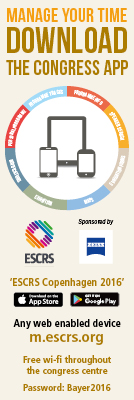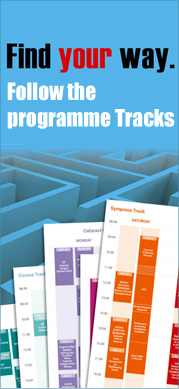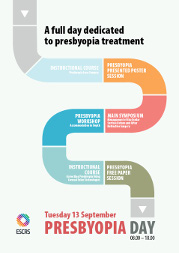Posters
The role of bevacizumab therapy in a patient with keratitis-ichthyosis-deafness syndrome (KIDS)
Poster Details
First Author: Y. Akova TURKEY
Co Author(s):
Abstract Details
Purpose:
To report on the management of a patient’s corneal disease with KID (Keratitis-Ichthyosis-Deafness) syndrome.
Setting:
Bayindir Hospital, Department of Ophthalmology, Ankara, Turkey.
Methods:
Case report: 32 year-old woman with corneal scarring, hyperkeratotic skin lesions and neurosensorial deafness was diagnosed as KID syndrome. Her visual acuity was hand motion due to diffuse corneal vascularization and scarring in both eyes.
Results:
She was treated with topical(1.0%) and subconjunctival bevacizumab(6X), topical steroids, unpreserved artificial tears, cyclosporine(0.05%) and autologous serum (20%) as well as punctal plugs, and doxycycline. The corneal vascularisation and scarring showed marked improvement, and her visual acuity improved to counting fingers at 2 m after 9 months of therapy.
Conclusions:
Corneal blindness due to severe corneal neovascularization, scarring and dry eye associated with KID syndrome may benefit from long-term topical bevacizumab therapy and repeated subconjunctival bevacizumab injections in addition to aggressive dry eye treatment with unpreserved artificial tears, autologous serum, punctal plugs, and doxycycline. This therapeutic regimen provided to this patient an ambulatory vision without having local or systemic side effects.
Financial Disclosure:
NONE





